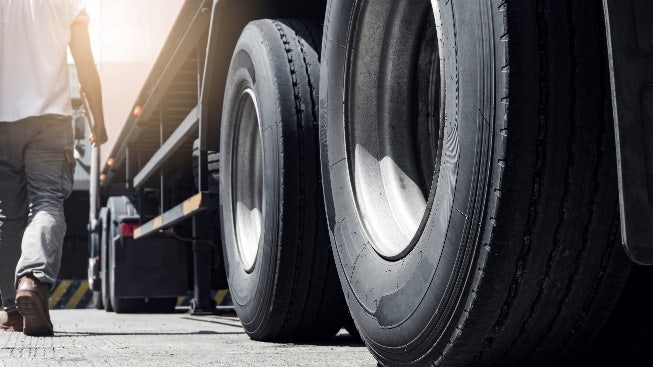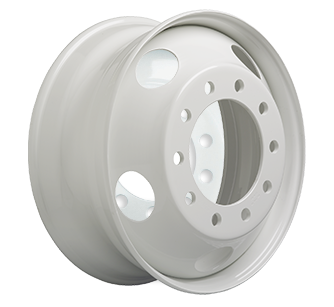Whether you’re spec’ing a new truck or considering upgrades to your existing fleet, choosing new wheels can seem like a difficult decision. But it doesn’t have to be.
Keep these questions in mind as you explore your options to make sure you get the right wheel for your rig:
- What is the truck’s intended use and application?
Vocational vehicles typically need a stronger, more durable steel wheel while haulers favor a lighter-weight aluminum wheel to help maximize payloads.
- How fast do you drive?
Because steel wheels are heavier than aluminum, they increase a truck’s unsprung weight, or weight not supported by the suspension. This weight is most susceptible to road shock and cornering forces, so the faster you drive on steel wheels, the rougher your ride will be. In addition, the weight of steel wheels can make a truck slower to accelerate and brake, which can impact handling. If you typically drive in the city or at low speeds on construction sites, these issues shouldn’t present any problems for you. However, if you’re a long-haul carrier, aluminum wheels may offer you more control at faster highway speeds.
- Does your truck need single, dual or wide-base wheels?
Dual rear wheels help better distribute the weight of a truck’s load and improve overall handling. However, wide-base single wheels have been gaining in popularity because they offer better load distribution than traditional single wheels, without the additional cost and weight that come with duals. Dual wheels do offer one important consideration over wide-base wheels, though – redundancy. If a dual wheel’s tire blows out on the road, you’ll likely still have an operational wheel on that axle, increasing your ability to control the truck.

- What’s your price point?
Steel wheels are the traditional choice for most drivers and fleet managers because they’re the most cost-effective. In fact, aluminum rims can cost three to four times more than steel wheels. However, their lighter weight – up to 30 pounds less per wheel than steel options – may help offset the hefty price tag for weight-sensitive applications.
- What are your maintenance demands?
Steel wheels are made to withstand punishing job sites, but they can be more prone to rust and corrosion than aluminum wheels, especially if you live in an area where brining is popular during the winter. Aluminum wheels may offer a rust-resistant shine on the highway, but the finish typically doesn’t hold up to dirty, dusty, rock-filled job sites.
The Choice Is Clear – Road Choice® High-Strength Steel Wheels
When it’s time to replace your wheels, turn to Road Choice® for the best performance.
Road Choice steel wheels are manufactured using quality materials, expert processes and refined workmanship to delivery durability and proven performance at one of the greatest values available.
We offer a full-line of steel single and dual wheels to fit all steer, drive and trailer axle positions. All Road Choice steel wheels feature positive hub-piloting and cone-lock clamping, and are designed to meet or exceed North American corrosion standards.

Plus, each wheel comes with a five-year warranty from the date of manufacture, which is the longest wheel warranty available in the aftermarket.
Learn more about the Road Choice wheel program here, you can also search for any Road Choice product by part number, cross reference or description, or explore our network of more than 600 North American retailers to find a location near you.